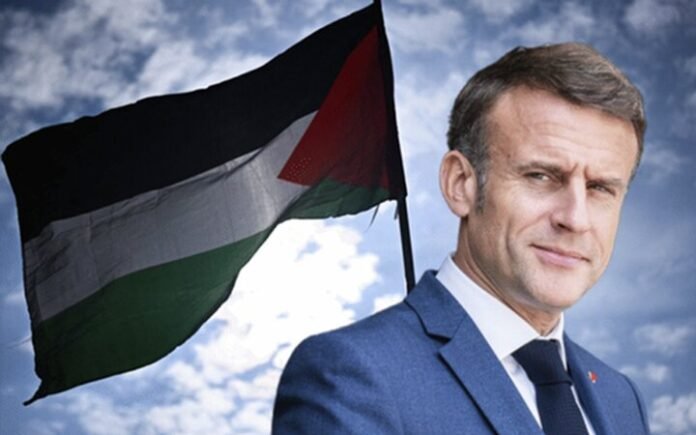In what seemed like a historic moment, France, Belgium, Luxembourg, Malta, Monaco, and Andorra officially recognized the State of Palestine, a day after similar moves by the UK, Canada, Australia, and Portugal. This wave of recognitions, announced during the UN conference on the “two-state solution” in New York, brought the Palestinian issue back to the forefront of international diplomacy.
But between the applause in the UN chamber and the bloodshed that has plagued Gaza for nearly two years, the key question remains: can recognition alone change realities on the ground, or is it merely a salve for Western consciences haunted by images of ongoing massacres?
Recognition without leverage
President Emmanuel Macron declared that France could no longer delay such recognition, blaming the international community for its collective failure to secure peace. Yet no tangible measures followed—no sanctions, no economic conditions, no diplomatic pressure on Israel. What is the true value of recognition without enforcement mechanisms?
A gesture to appease domestic opinion
These moves also reflect internal political calculations. Across Europe, municipalities have raised the Palestinian flag, and protests denouncing “genocide” in Gaza have surged. This raises the question: is recognition aimed at reshaping Middle East politics, or simply at calming public outrage at home?
A fragmented Palestine, unity absent
European capitals emphasize the Palestinian Authority as the sole partner, while excluding Hamas entirely. But can a viable state be built on divided and besieged territory? Is the West attempting to create a “made-to-order” Palestinian state, stripped of resistance, rather than addressing the full political reality?
Israel doubles down
Israel’s response was swift and categorical: “There will be no Palestinian state,” declared Prime Minister Benjamin Netanyahu, while ministers called for annexing the West Bank. Far from pressuring Israel, recognition may actually harden its stance, exposing the limits of purely symbolic gestures.
Europe’s search for relevance
This initiative also signals Europe’s desire to reassert itself in Middle Eastern diplomacy, after decades of American dominance. Yet the absence of Washington and Tel Aviv at the UN conference underscores the limits of Europe’s influence. Can Europe act independently, or will it remain overshadowed by U.S. veto power?
Risk of becoming a political alibi
The danger is that recognition becomes a façade—an “official” state without sovereignty, borders, or resources. Instead of empowering Palestinians, it could legitimize the status quo and allow Israel’s occupation to deepen unchecked.
Steps beyond symbolism
For recognition to have real impact, it must be accompanied by:
-
Targeted economic sanctions against settlement activity,
-
Concrete diplomatic pressure such as downgrading relations,
-
Support for international justice to prosecute war crimes,
-
Institutional and financial support for Palestinian governance,
-
Protection and empowerment of civil society,
-
and a broader multilateral coalition to reassert international law.
Conclusion
Recognizing Palestine is a necessary first step—but not an endpoint. Without follow-up action, it risks becoming an empty gesture, a symbolic act with no transformative power. The deeper reading is clear: recognition should be the beginning of a political process toward justice, not the end of it.


